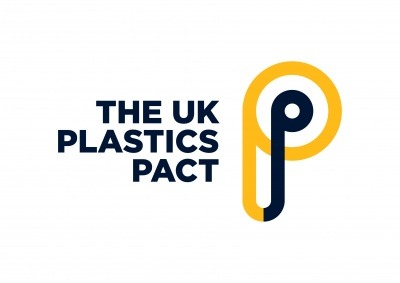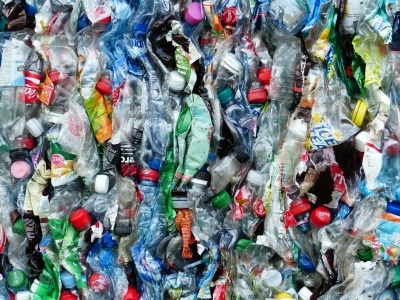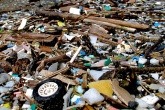UK Plastics Pact launches Roadmap to 2025 targets
 The UK Plastics Pact has published its Roadmap to 2025, a document setting out how Pact members can achieve its ambitious targets to reduce plastic packaging waste.
The UK Plastics Pact has published its Roadmap to 2025, a document setting out how Pact members can achieve its ambitious targets to reduce plastic packaging waste.
Announced to much fanfare in April this year, the UK Plastics Pact is a groundbreaking initiative developed by the Waste and Resources Action Programme (WRAP), in partnership with the Ellen MacArthur Foundation (EMF), designed to help drive the UK towards a circular economy for plastics.
Currently, the agreement has more than 100 signatories, from retailers, producers and reprocessors to trade bodies and devolved governments. According to WRAP, its 68 business members are responsible for 80 per cent of the plastic packaging in UK supermarkets and 50 per cent of the total plastic packaging on the UK market.
Members of the Pact have signed up to achieve four key milestones by 2025, all intended to reduce the consumption of single-use plastics and keep material in use for longer:
- Eliminating problematic or unnecessary single-use plastic packaging through redesign, innovation or alternative delivery models (such as reuse)
- 100 per cent of plastic packaging to be reusable, recyclable or compostable
- 70 per cent of plastic packaging effectively recycled or composted
- 30 per cent average recycled content across all plastic packaging
The new Roadmap, published today (15 November), is intended as a guide to help signatories achieve these targets. It is mainly focused on the role of businesses in reducing plastic packaging waste, but also contains complementary actions for government and individuals.
How to achieve the 2025 targets
The Roadmap sets out three key milestone dates: April 2019, the end of 2022, and 2025.
By April 2019, the Roadmap states that criteria for what is considered ‘problematic’ packaging (Target 1) will have been published – welcome news considering that the use of terms like ‘problematic’ has previously been criticised for its vagueness.
In addition, a list of specific problematic items will be developed, setting out the different actions required to deal with them. WRAP will also be developing a strategy to engage citizens to play their part in eliminating problem plastics, with a view to adopting high profile public engagement campaigns by the end of 2022.
In terms of the second target, members will need to develop specific plans to tackle different non-recyclable materials, as well as develop and initiate projects to design innovative types of packaging that are more easily recyclable, reusable or compostable. By the end of 2022, pilots of the most viable new designs should be scaled up, with each member carrying out at least one trial of reusable packaging.
Target 3, making 70 per cent of packaging recycled or composted by 2025, will require innovation projects to improve the collection, sorting, recycling and composting of existing packaging. Within this, WRAP says, the development of new markets for recycled polymers will be crucial. It is hoped that reform of the UK’s producer responsibility system – expected to be discussed in the upcoming Resources and Waste Strategy – to see producers pay more towards the collection and sorting of their end-of-life products, will provide for increased investment in both infrastructure and communications around recycling.
For the final target, WRAP states that the Pact’s waste and recycling sector members should have installed additional capacity by the end of 2022 to increase the amount of secondary material available for use in plastic packaging. Interim targets for all four Plastics Pact goals are set out in it the Roadmap, including targets for recycling rates and recycled content.
For all targets, periodic reviews will be carried out to ensure that members are on track and to identify changes and new challenges; WRAP states that the Roadmap is ‘a living document [that] will evolve in future versions’. Members are also being asked to publicly report their actions and progress towards the Plastics Pact goals.
Progress so far Marcus Gover, WRAP Chief Executive:"This is proving to be a powerful and motivated group."
Marcus Gover, WRAP Chief Executive:"This is proving to be a powerful and motivated group."

The Plastics Pact is led by an Advisory Board, the current members of which are Tesco, M&S, Ella’s Kitchen, ABP Beef, Veolia, Plastipak, EMF, the Local Government Association, Defra and Greenpeace.
Four work streams have been set up, focusing on: measuring and reporting; criteria for and definitions of recyclability; criteria for and definitions of ‘problematic and unnecessary’ plastics; and films and flexible plastic recycling.
At the inaugural UK Plastics Pact Summit, held in London on 11 October, WRAP launched its £1.4 million flagship projects competition, in partnership with UK Research and Innovation (UKRI). The competition will provide funding for new, collaborative projects that seek to address the short-term barriers to plastics circularity, such as cutting the total volume of plastic waste in the UK and reducing confusion from citizens about waste and recycling.
Grants of between £100,000 and £500,000 will be provided to successful applicants, and the deadline for outline proposals is Friday 30 November 2018.
Commenting on the Plastics Pact so far, Marcus Gover, Chief Executive of WRAP, said: “We have sixty-eight of the UK’s largest businesses and organisations committed to the UK Plastics Pact from retail and brands, manufacturers and hospitality, to the plastic supply sector, recycling and resource management. I’m very impressed with progress made in the first six months since we launched the Pact. This is proving to be a powerful and motivated group. The Roadmap is a real opportunity for them to forge ahead and make change happen at scale, and in significant ways.
“But these targets cannot be delivered by business action alone. It needs policy intervention as well as consumers to play a part. Factors like extended producer responsibility are going to have a profound influence on momentum, and effecting change in areas such as collections, recycling and reprocessing.”
For more information about the Roadmap to 2025 and the work already underway, visit the WRAP website.









